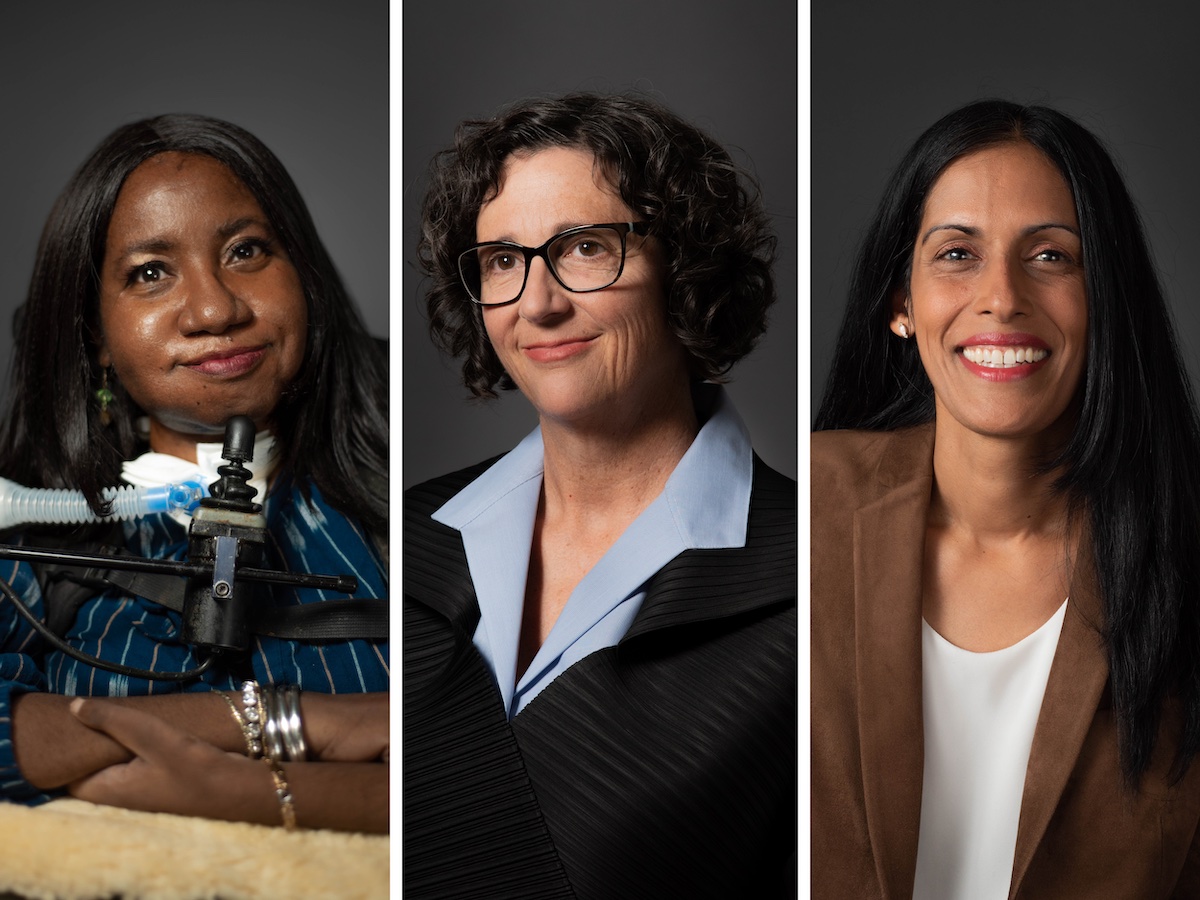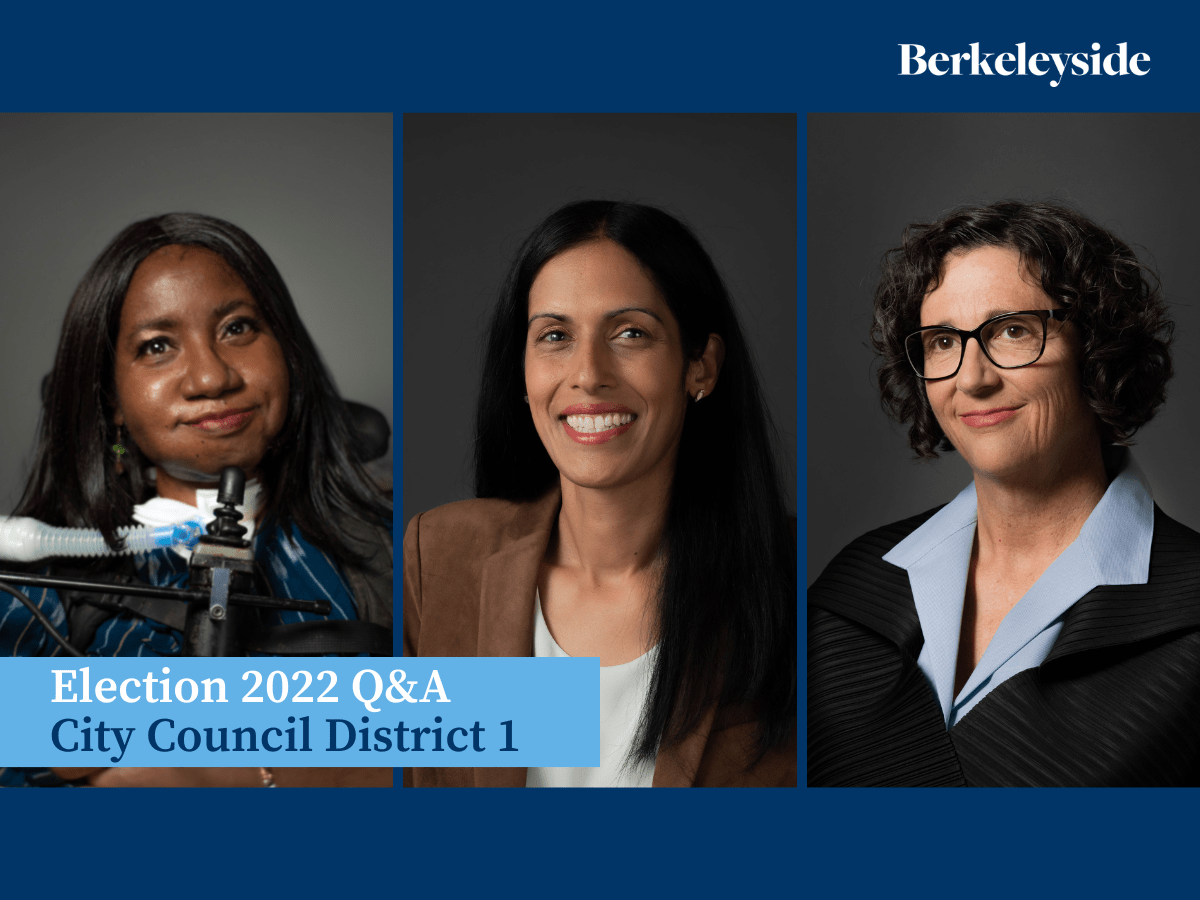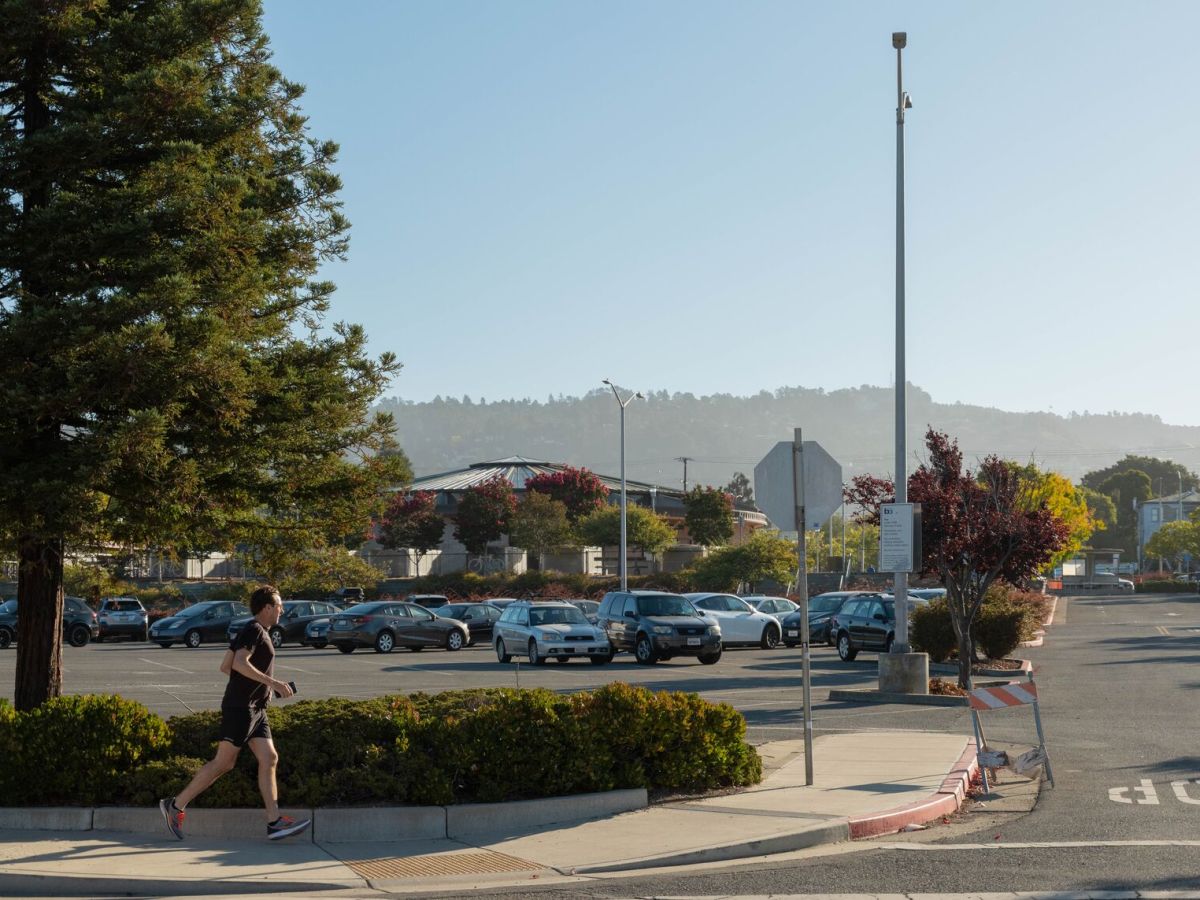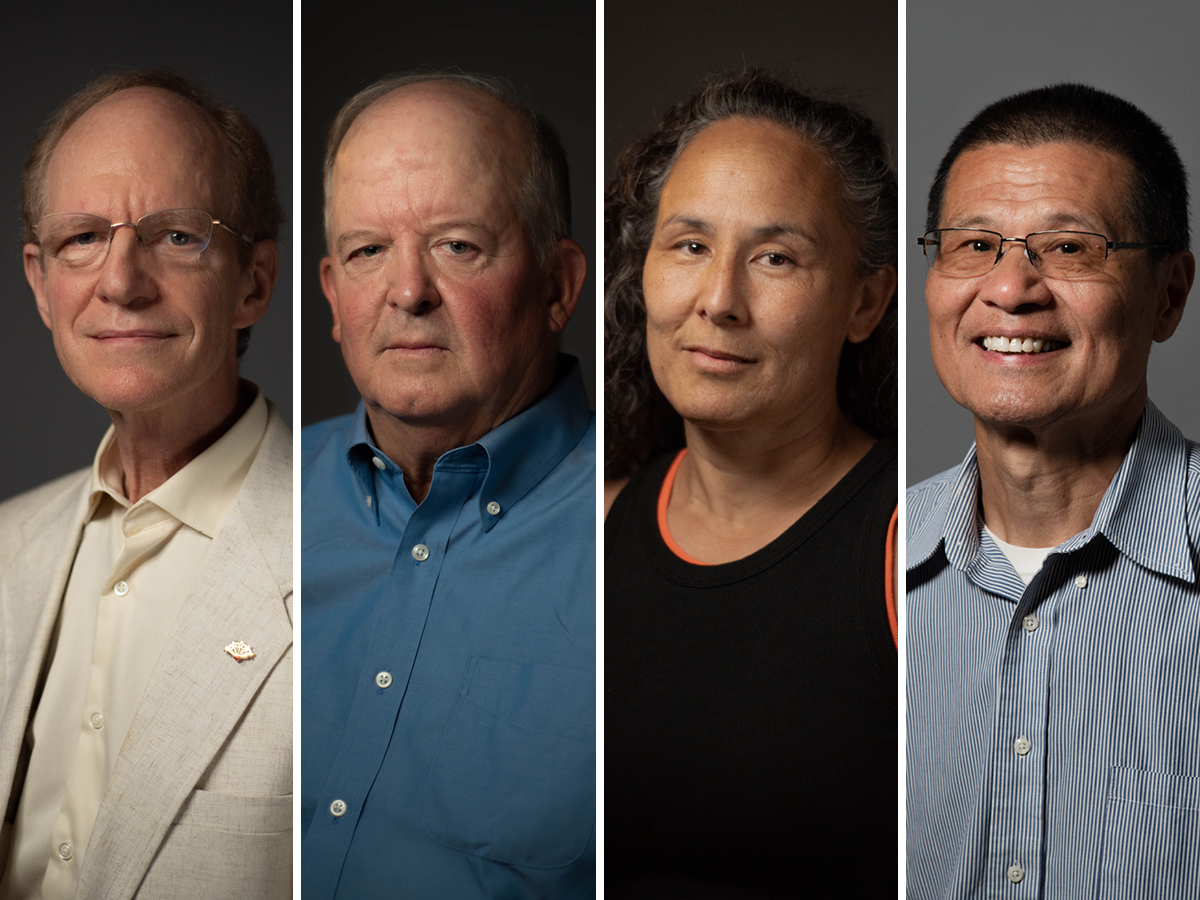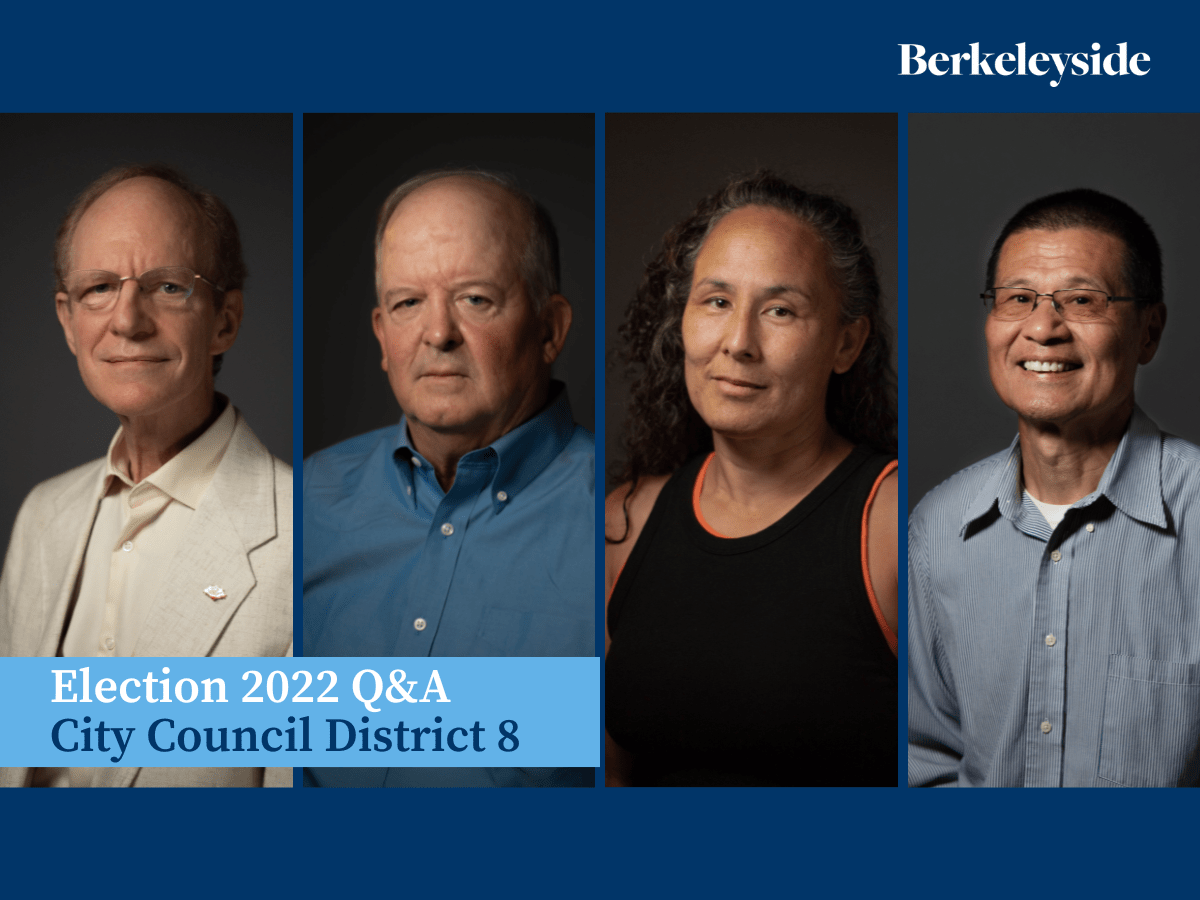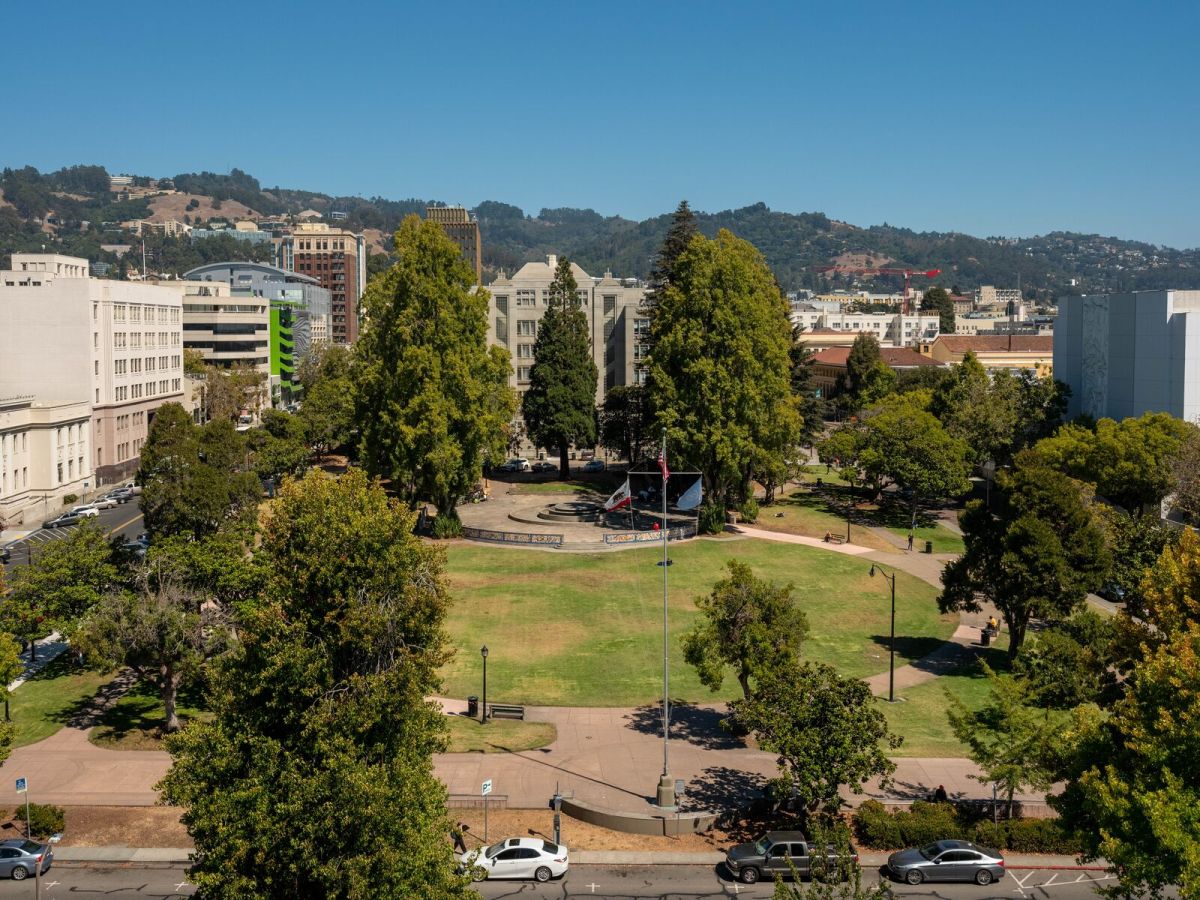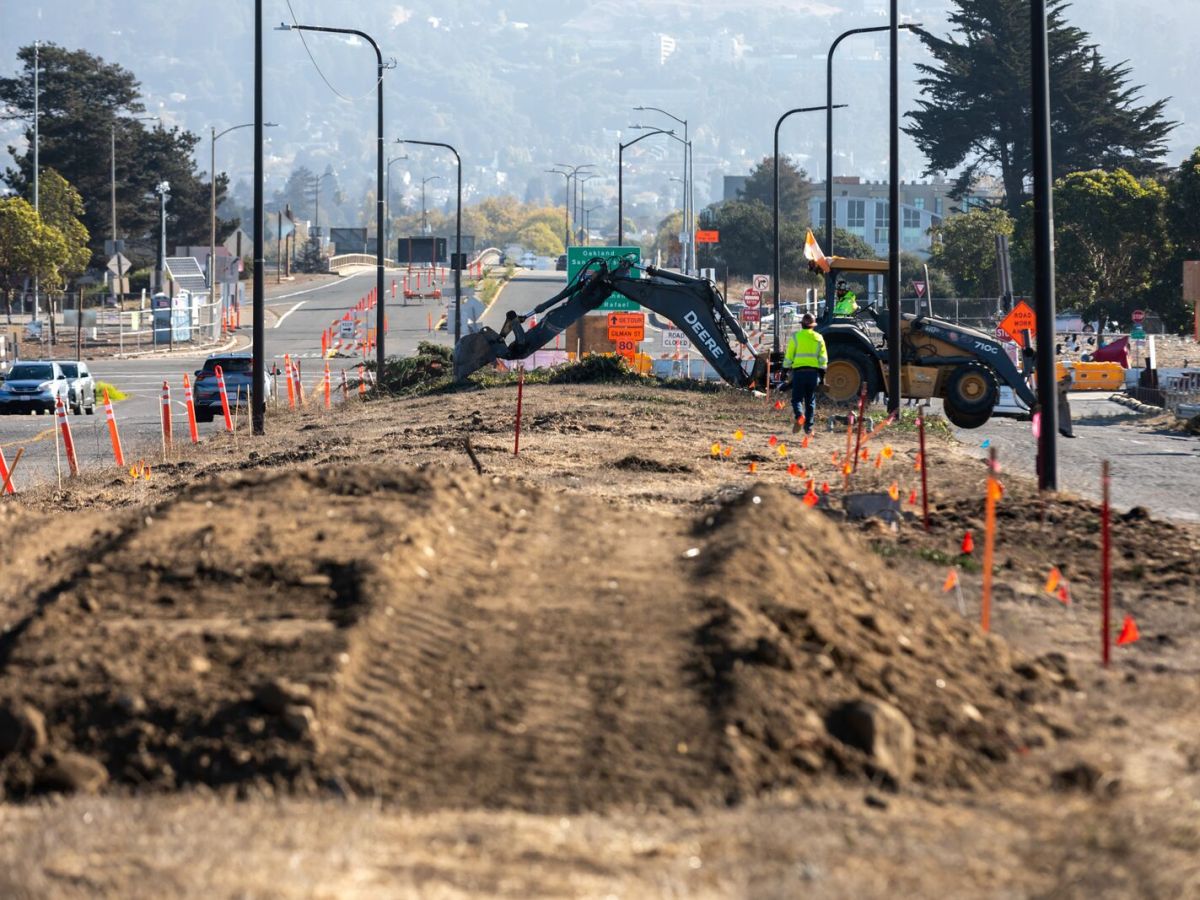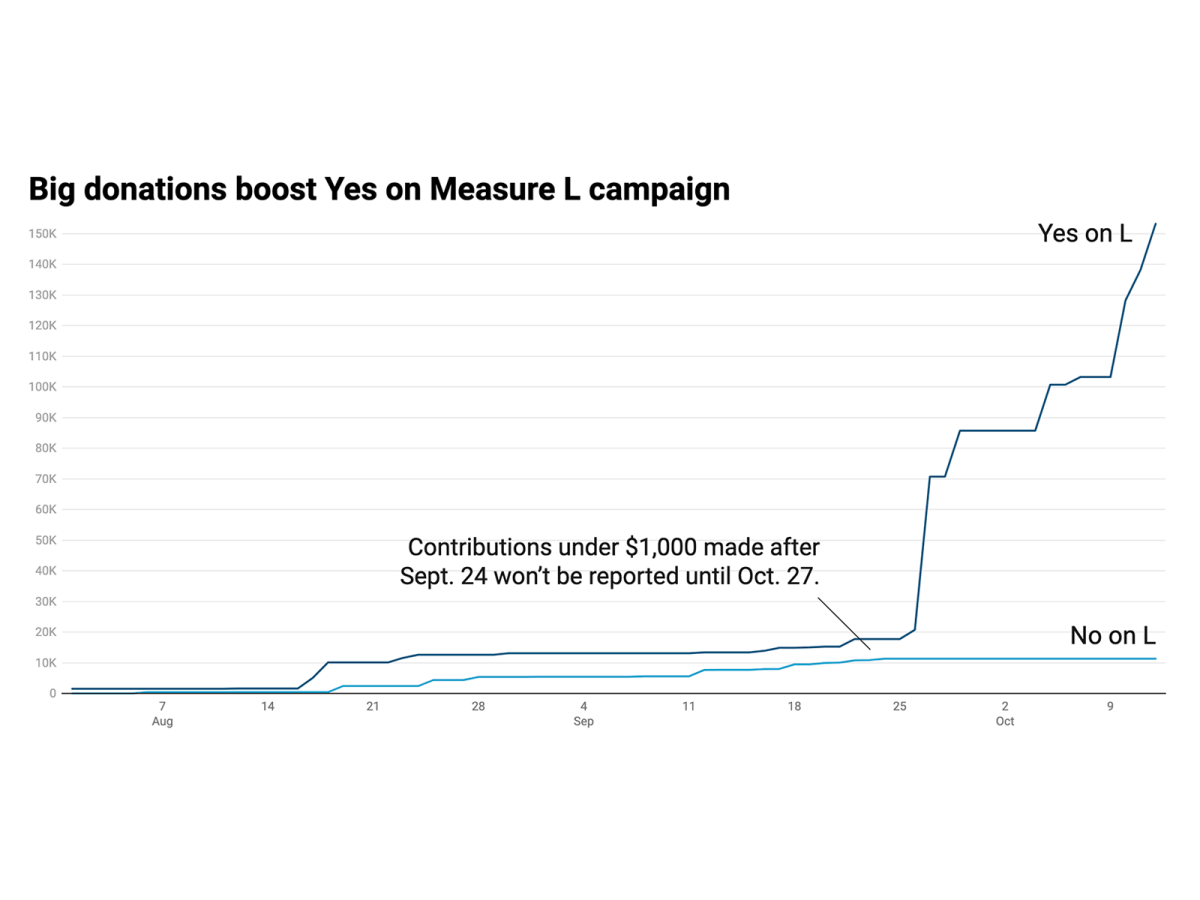Rival campaigns to represent Northwest Berkeley’s District 1 are leading the way in fundraising for City Council seats, and a big gap is emerging between the two leading candidates for District 8.
Meanwhile, supporters of the $650 million infrastructure and affordable housing bond Measure L have now brought in well over $300,000 as their campaign continues to draw support from labor and housing organizations.
With less than a week before Election Day and early voters returning their ballots, Berkeleyside is continuing to track spending on this year’s local races. A recent filing deadline gave us more insight into how much each campaign had raised as of late October — here’s what we’ve learned:
Contentious District 1 race leads council fundraising
District 1 incumbent Rashi Kesarwani is this year’s top City Council fundraiser so far, but one of her challengers for the seat, Planning Commission chair Elisa Mikiten, isn’t far behind.
Campaign finance documents show Kesarwani had raised $20,247 from donors as of Oct. 22, when the most recent filing period ended, compared to $15,821 in contributions to Mikiten’s campaign.
Both candidates are participating in Berkeley’s public financing program, which matches contributions to participating campaigns 6 to 1. Candidates who participate in the program, which caps individual donations at $60 and only matches contributions from Berkeley residents, can receive up to $47,000 in public financing. Campaigns can keep raising money once they’ve hit the limit, but it won’t be matched by the city.
Kesarwani and Mikiten have both gotten the maximum amount from public financing, meaning they’ve each topped $60,000 in total fundraising.
Another candidate in the race, holistic health and disability advocate Tamar Michai Freeman, had raised $1,790 as of the deadline, which when combined with $10,470 of public financing gives her $12,260.
The list of donors to Kesarwani’s campaign includes a surprising name — her challenger’s. Before she launched her campaign for the District 1 seat, Mikiten contributed to Kesarwani’s bid for a second term last November.
“When she raises concerns about my leadership over my council tenure,” Kesarwani said of Mikiten, “I have to question whether that’s really an argument made in good faith, because not too long ago she saw fit to donate $60 to my re-election campaign.”
Mikiten said her view of Kesarwani’s actions has soured since she cut that check.
“I didn’t really do a deep dive until 2022 — 2022 was kind of a big year for city politics,” Mikiten said, citing how Kesarwani handled a zoning decision for the district’s BART station, which has emerged as a central issue in the campaign, and her support for extending a planned new bike lane along Hopkins Street. “I saw too many people outside her sphere of concern,” Mikiten added.
Other donors to Kesarwani’s campaign include interim Fire Chief David Sprague, Fourth Street developer Denny Abrams and state Sen. Nancy Skinner, each of whom gave the maximum of $60. Kesarwani has also gotten donations from BART directors Rebecca Saltzman and Janice Li, as well as Abigail Thorne-Lyman, who leads the transit system’s development work.
Mikiten’s donors include Councilmember Sophie Hahn, school board candidate Michael Chang and musician Tony Corman, a leader of the North Berkeley Neighborhood Alliance, a group that has called for smaller development at the BART station.
Humbert pulling ahead in money race for District 8
Attorney Mark Humbert, who is seeking to succeed outgoing Councilmember Lori Droste in representing Southeast Berkeley, has brought in $10,725 from donors and the maximum public financing contribution for a total haul of $57,725.
That’s more than double the amount raised by Rent Board Commissioner Mari Mendonca, who received $4,244 from contributors at the end of the filing period and $21,072 in public financing, giving her $25,316.
Humbert, endorsed by seven out of eight City Council members, also counts donations from most of the body: Droste, Kesarwani, Rigel Robinson, Terry Taplin and Susan Wengraf have all given Humbert $60, as has Mayor Jesse Arreguín. Other names on his donor list include public relations strategist Sam Singer, former councilmember Laurie Capitelli and David Trachtenberg — the architect, whose firm has designed several major apartment projects, has also contributed to both the Kesarwani and Mikiten campaigns.
Mendonca’s list of backers includes Rent Stabilization Board members James Chang, Paola Laverde and John Selawsky, as well as Mina Wilson, the executive director of the nonprofit Healthy Black Families.
Five candidates will appear on ballots for the District 8 seat, although one, Mary-Lee Smith, dropped out of the race; the other two, Peter Bruce DuMont and Jay Wu, have not reported raising any money.
Councilmember Kate Harrison has assembled the third-largest fundraising haul in the council races so far, a total of $61,645, despite being unopposed in her bid for a third term representing District 4. Harrison raised nearly all of that money when she appeared to be headed for a contested election — city records show she hit the public financing match limit in January, and all but $1,280 of the $14,645 she brought in from donors arrived before June, when a candidate who was going to challenge her dropped out of the race.
Robinson, the incumbent in District 7 who will be the only candidate on the ballot there, has raised $10,449 from donors and received $12,385 in public financing.
While outside groups are playing a role in Oakland’s elections, as well as past Berkeley City Council campaigns and this year’s school board races, they haven’t been a factor in council races so far this year — campaign finance documents show no reported independent expenditures on behalf of council candidates.
(Update: Documents posted online Wednesday show the first independent expenditures this year on behalf of City Council candidates. Service Employees International Union Local 1021, which represents about 500 city workers, reported it sent mailers endorsing Harrison and Mendonca, which were valued at $4,382 per candidate.)
Measure L fundraising tops $325,000
The campaign to pass the infrastructure and housing bond, Committee for an Affordable and Resilient Berkeley — Yes on Measure L, reported $278,985 in donations as of Oct. 22, and since then has taken in another $46,500 worth of large contributions, which must be reported within 24 hours.
That puts the Yes campaign’s fundraising total at $325,485, more than 10 times the $31,723 raised by the measure’s opponents, Berkeleyans for Better Planning No on Measure L.
By comparison, the 2018 joint campaign to pass measures O and P, a bond and tax for affordable housing and homeless services, raised $302,299; the 2016 campaign for the infrastructure bond Measure T1 raised $35,482.
Organized labor remains the Yes on L campaign’s biggest backer, providing almost half of its donations, $159,700. Five of the six largest contributions in support of the bond came from unions in the building trades — groups representing local sheet metal workers, carpenters, electrical workers, operating engineers, plumbers and steamfitters each gave at least $20,000.
Those unions’ members stand to benefit from the housing and infrastructure projects Measure L would fund, and the building trades also partnered with Arreguín, who has led the bond campaign, on a recent ordinance creating new labor standards for major construction projects.
Unlike in races for mayor or City Council, there are no limits on donations to campaigns for measures.
Affordable housing builders and others tied to nonprofit housing organizations are the bond’s next-largest category of support, providing just over $64,250. A $10,000 contribution from the Non-Profit Housing Association of Northern California’s political arm last week brought its total support for the measure to $25,000, while the Marin County-based Ecumenical Association for Housing chipped in $10,000 on Tuesday.
For-profit developers have also been backing the measure — Wareham Development gave the Yes campaign $15,000 on Oct. 21, matching the contribution from an LLC tied to developer Patrick Kennedy earlier in the month.
Capitelli is the opposition’s biggest donor, having given the No campaign $2,990, followed by former parks and waterfront commissioner Jim McGrath, who has contributed $2,379, and Michael Rice, president of the Oakland firm VR Research, who gave $2,000.
The deadline to register to vote online or by mail in Alameda County is Oct. 24, and the election is Tuesday, Nov. 8. We put together a guide to the essentials of how to register and vote, what’s on the ballot, voters’ rights and more.
Here are some other helpful election resources:
- The city of Berkeley’s election portal and candidate statements
- Don’t know your Berkeley City Council district? The city website has a handy tool for that.
- Voter’s Edge: View a personalized ballot by entering your address.
- Voter guides from the Daily Cal, CalMatters, KQED, the Bay Area News Group and The League of Women Voters Berkeley Albany and Emeryville
- Check your voter registration status (and sign up to get election materials online).
- Find your voter profile (Alameda County registrar of voters).
See complete 2022 election coverage on Berkeleyside.

